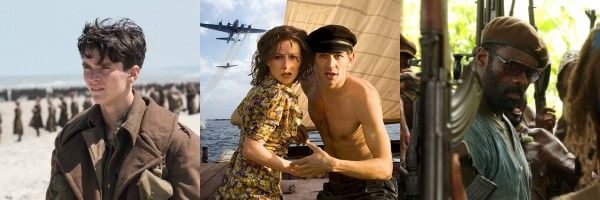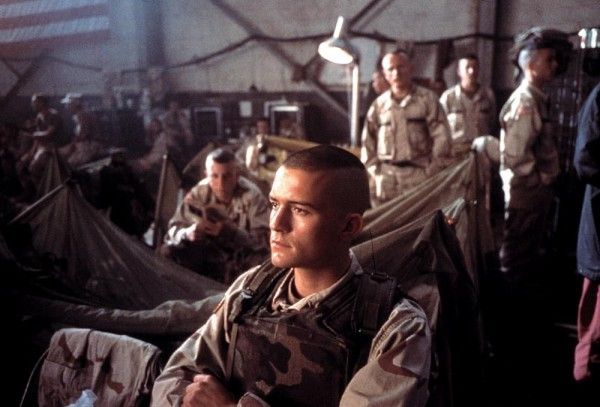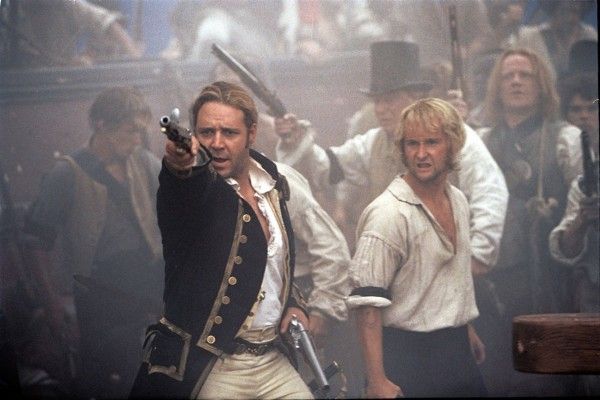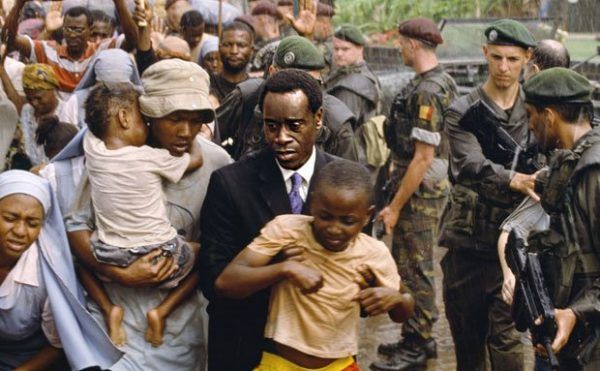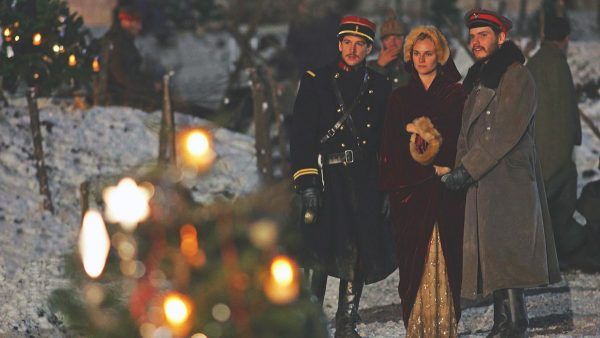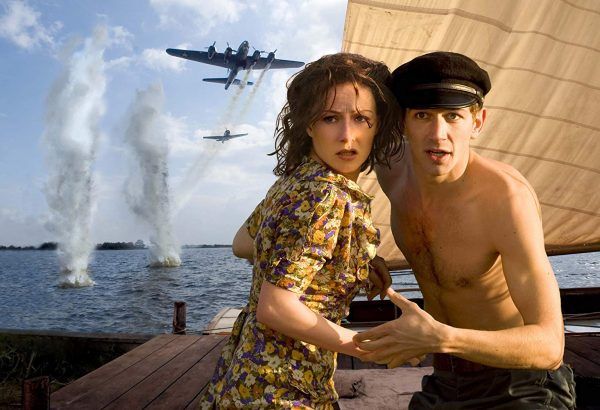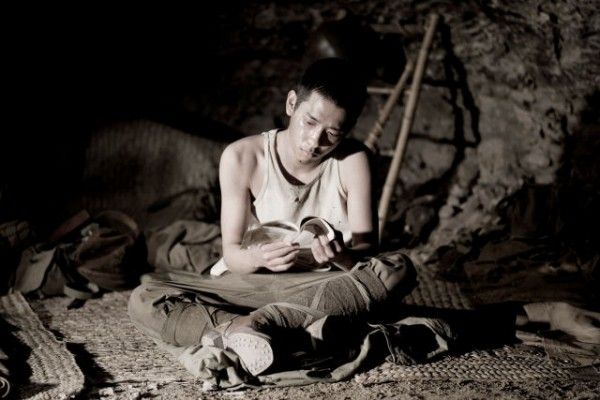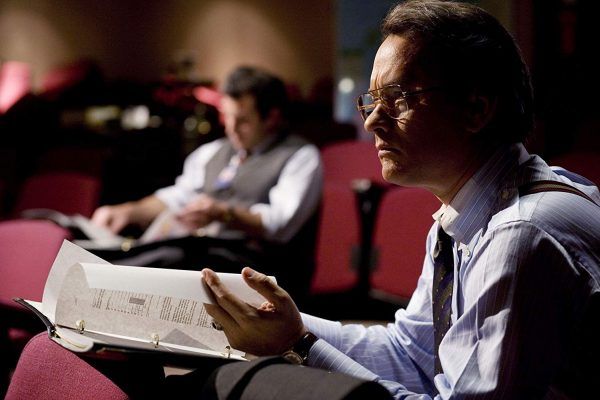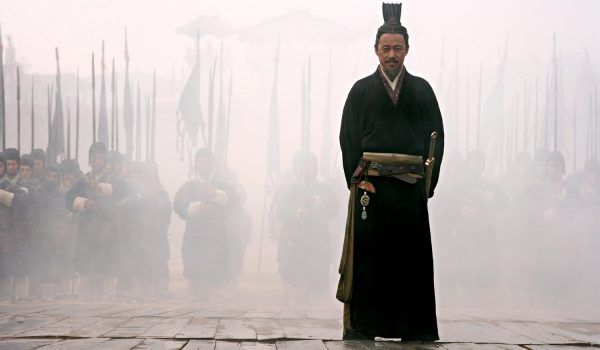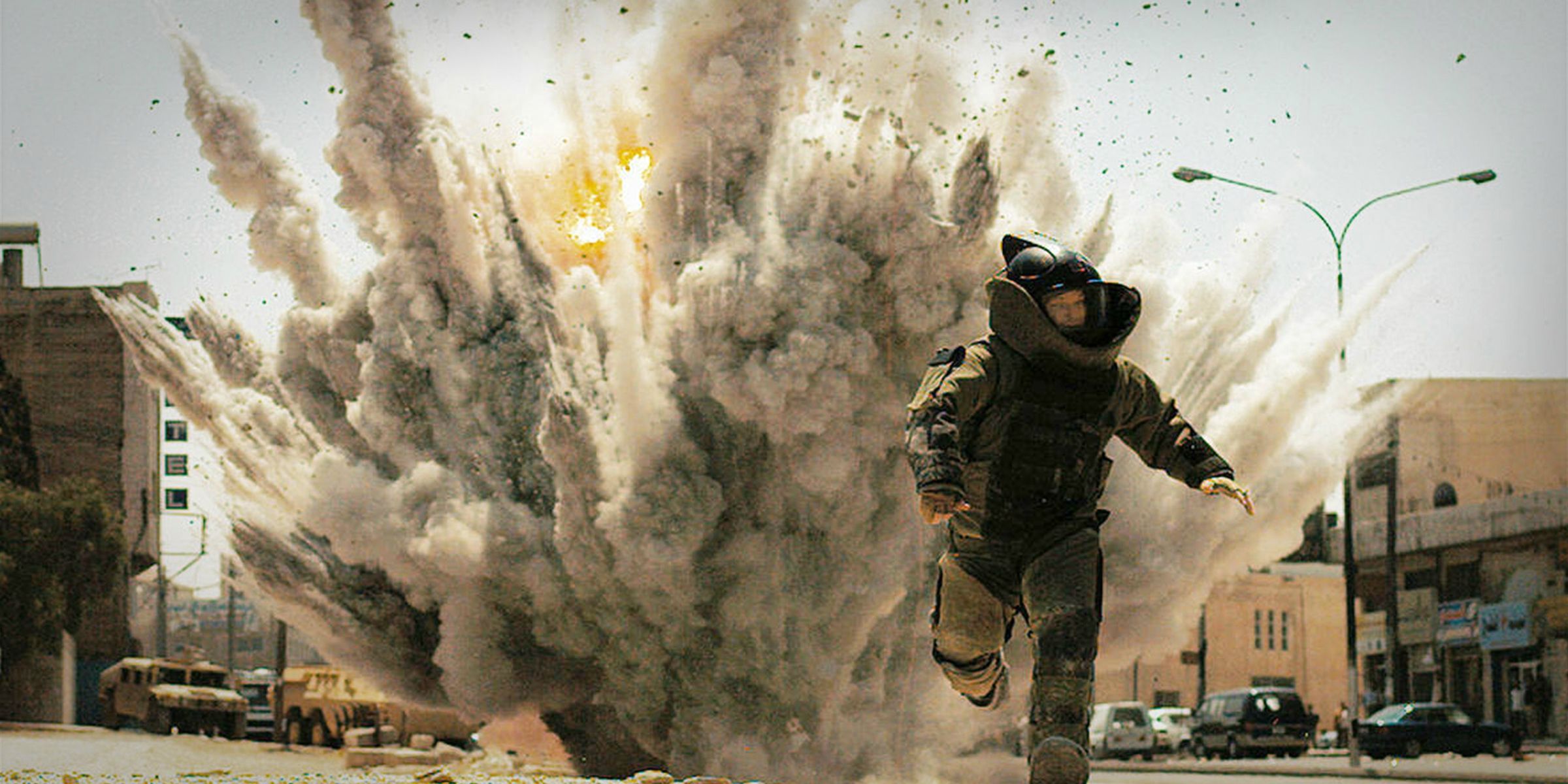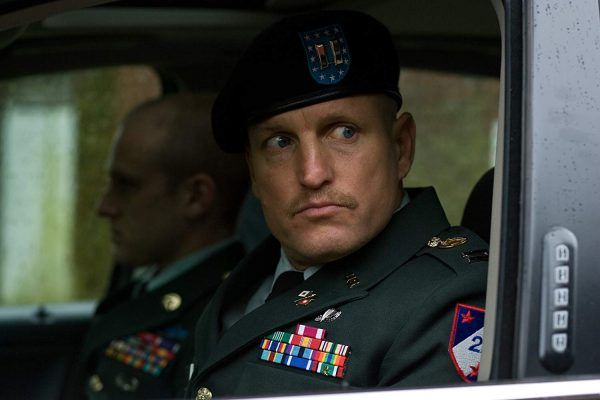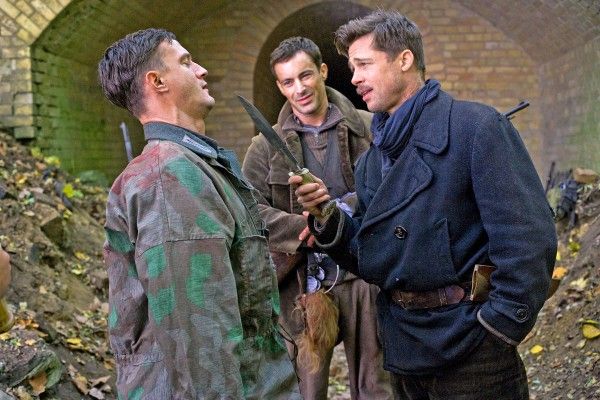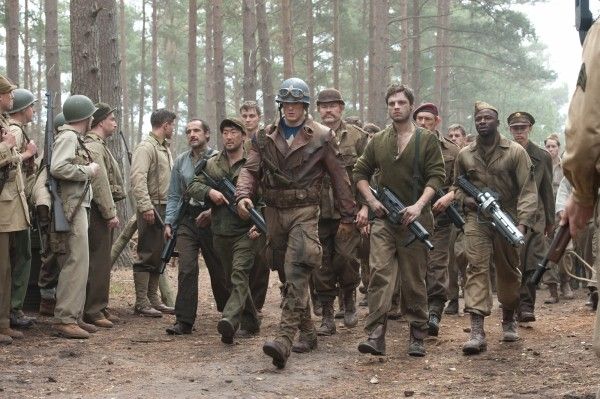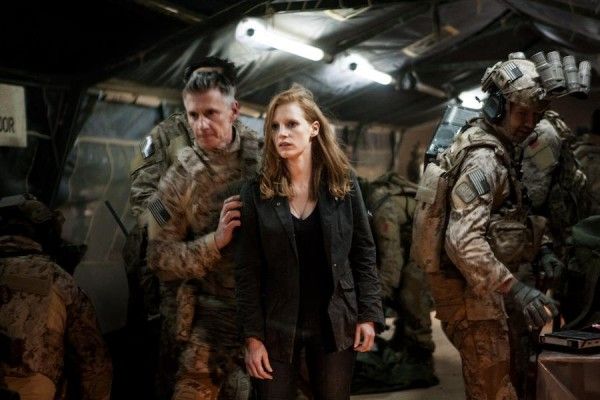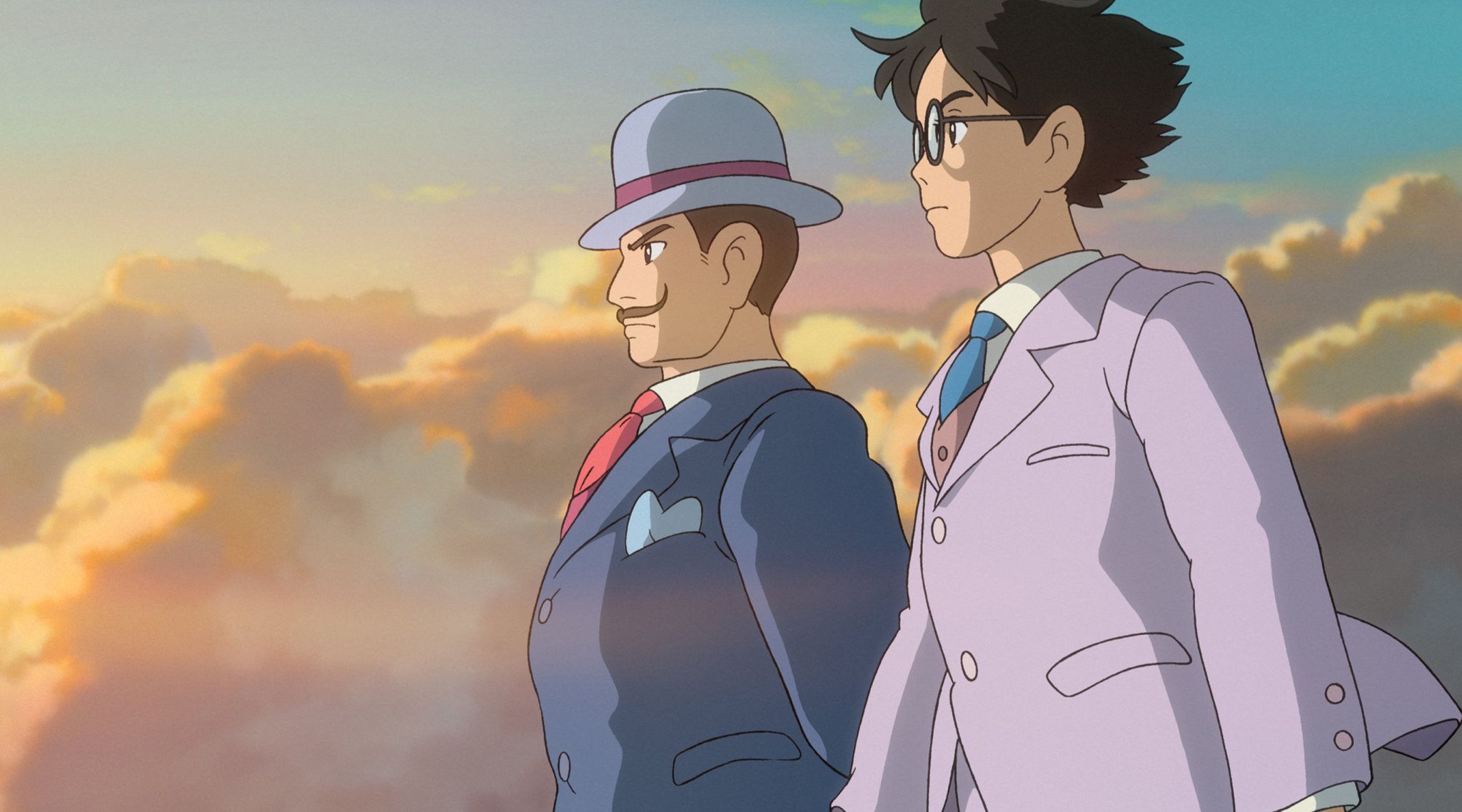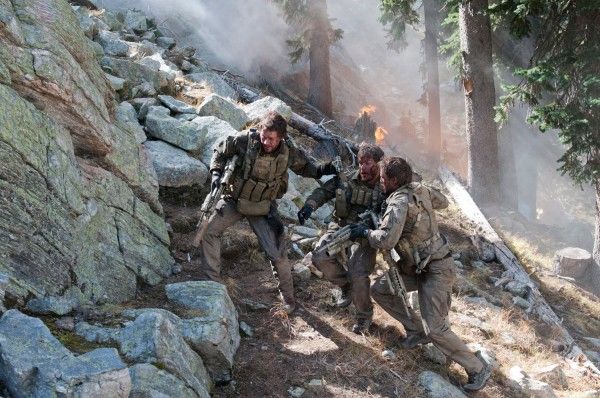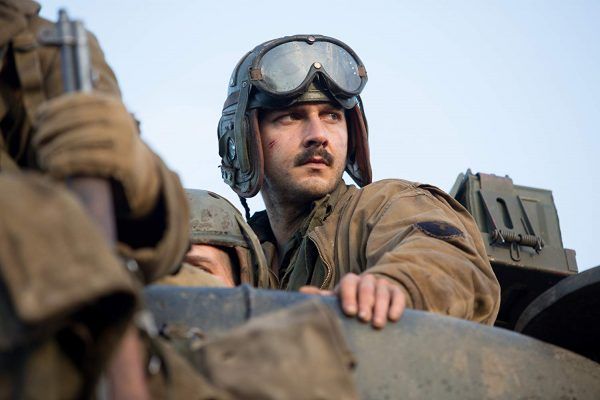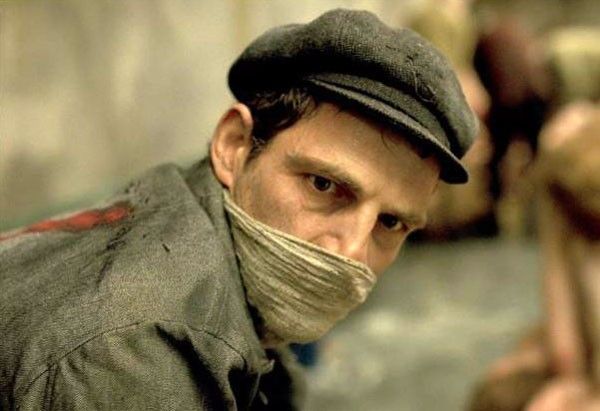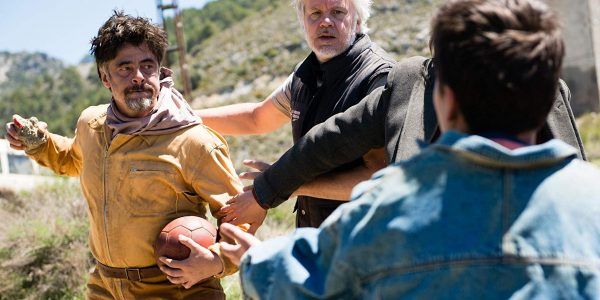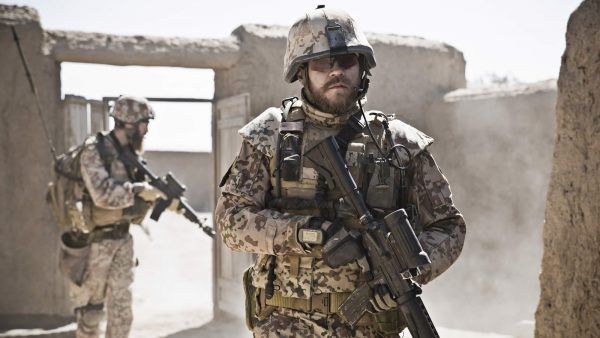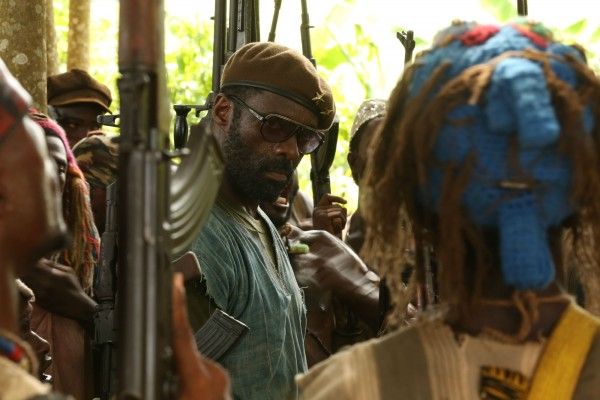François Truffaut once argued that it was impossible to make an anti-war movie, because once you put warfare on camera, it can’t help but look dramatic. But filmmakers have been trying to make anti-war movies for decades, while other filmmakers have been hard at work making pro-war movies to support their nation’s troops.
It’s a complex genre, in which some of the best films can be unironically positive about a war, while others are also entirely critical of that exact same war. Some war movies are action-packed and rousing, others a violent and depressing. Some are ironic and funny, others are brutal and tragic. There are war movies for every kind of person in our list of The Best War Movies of the 21st Century (so far), but there’s one thing you won’t find… and that’s fictional wars.
Many of these war stories are fictional, but they all take place during actual conflicts that occurred on the planet Earth. We extend our apologies to The Lord of the Rings and The Force Awakens, but the historical significance of the war genre is that these films help us catalogue our feelings about real-life violent conflicts, and that makes the genre distinct from otherworldly epics, or even conventional action movies.
Black Hawk Down (2001)
Ridley Scott’s Black Hawk Down is a masterpiece of immediacy, thrusting the audience in the midst of a seemingly infinite firefight. Global politics lose all meaning, now only survival matters. Based on the true story of an ill-fated raid in Mogadishu, Somalia, where two Black Hawk helicopters crash-landed in the midst of hostile territory, stranded soldiers and forcing their compatriots to mount a risky rescue mission, Scott’s film keeps every member of the breathtaking ensemble cast (Josh Hartnett, Eric Bana, Ewan McGregor, Jason Isaacs, Tom Hardy, Orlando Bloom, Sam Shepard, the list goes on and on and on) in play throughout the entire running time. And thanks to Oscar-winning editing by Pietro Scalia, you never get confused about where everybody is, what their mission is, and where all those bullets are coming from.
Taut and intense, Black Hawk Down brings a chaotic mission into sharp focus, creating one of the most exhilarating approximations of modern warfare ever captured on screen.
Master & Commander: The Far Side of the World (2003)
Peter Weir’s lively and impressively detailed historical drama, based on Patrick O’Brian’s celebrated “Aubrey-Maturin” novels, takes place above and below decks on the H.M.S. Surprise during the Napoleonic Wars. Captain Jack Aubrey (Russell Crowe) has been tasked with keeping the seas free from piracy, but he’s met his match in a French privateer called The Acheron, captained by a wily adversary. Along the way, Aubrey also matches wits with his ship’s Doctor, Maturin (Paul Bettany), who has no interest in war and every desire to explore the natural world around them.
Master and Commander: The Far Side of the World is the ultimate naval warfare movie, rich in period accuracy and dense with distinctive, fascinating characters. The loneliness of the sea, the nobility of service, the significance of science and the cleverness of military tactics all share center stage in a film that’s dramatically potent, full of exciting action… and surprisingly funny.
Hotel Rwanda (2004)
The Rwandan Civil War sets the stage for a harrowing based-on-a-true-story, in which hotel manager Paul Rusesabagina (Don Cheadle, Oscar-nominated) protected over a thousand refugees from a genocidal slaughter in the posh Hôtel des Mille Collines. The set-up is terrifying, as the country falls to ruin and Rusesabagina, dedicated to his job, has faith that his international clientele will do the right thing and prevent disaster. When that fails, it’s up to him and his wife Tatiana (Sophie Okonedo, also Oscar-nominated) to keep as many refugees safe as possible, in the face of tyrannical opposition.
Terry George’s Hotel Rwanda is one of the most suspenseful war films on record, a tale of overwhelming odds and a seemingly normal person fighting against them, just for the sake of human decency. It’s a testament to the importance of doing the right thing even in a situation where morality can, and will, kill you.
Joyeux Noël (2005)
In December of 1914, in the early years of World War I, a spontaneous truce was declared along the Western Front for Christmas. Soldiers from opposing foxholes - British, French and German - met in the battlefield to share supplies, play football, and take mass together, in one of the most inspiring stories to emerge from The Great War. It sounds almost like a fairy tale, but in Christian Carion’s beautiful Joyeux Noël the filmmaker shows us just how natural, and unstable, the historical day actually was. The hesitancy, the fear, and the heartbreak that soon they must all go back to killing each other is alive and potent.
The cast of wonderful actors - including Diane Kruger, Daniel Brühl and Gary Lewis - makes the Joyeux Noël story vivid on all sides, but it’s Carion’s wise decision to focus on the bizarre aftermath that sticks with you. All these soldiers overcame the fatal disease of hatred and, tragically, were deemed tainted by the experience. Apparently you just had to be there to understand. Or you had to see Joyeux Noël.
Black Book (2006)
Paul Verhoeven’s stunning espionage thriller Black Book stars Carice van Houten as a Jewish singer who goes undercover with the Nazis in the Netherlands. She’s trying to end the war, but the unexpected storyline has other plans, and she finds herself in one daunting and unpredictable situation after another, challenging her morality and putting her in the crosshairs of both her enemies and allies.
Black Book is a pulse-pounding movie, filled with exciting imagery and action that would seem pulpy if Verhoeven didn’t make it look so plausible. He populates his film with characters who are complicated and contradictory, and dares us to sympathize with people who look like monsters. And at the center of it all is van Houten, giving an astonishingly nuanced performance as a woman who goes through Hell many times over, and always comes out the other side.
Letters from Iwo Jima (2006)
Clint Eastwood’s ambitious two-film experiment, depicting The Battle of Iwo Jima from both sides of the conflict, wound up a little lopsided. The American-focused Flags of Our Fathers was somewhat well-received, but his stunning Letters from Iwo Jima - which was filmed almost entirely in Japanese - was quickly declared the superior achievement.
Ken Watanabe heads a striking ensemble cast, as American forces pummel Iwo Jima in World War II, and certain victory gradually devolves into horrifying failure. By placing the camera on opposing shores, Eastwood portrays the Allies as an overwhelming adversary, and escape from our noblest of protagonists seems increasingly impossible. Letters from Iwo Jima is one of Eastwood’s most distinctive and overwhelming accomplishments as a director.
Charlie Wilson’s War (2007)
From the late 1970s to late 1980s, the CIA armed the mujahideen in Afghanistan to stave off Russian encroachment in the north, and contributed to Russia bankrupting itself and ending the Cold War. And this operation, which completely changed the political landscape of the world as we know it, could not have succeeded without the assistance of lounge lizard Congressman Charlie Wilson, played by Tom Hanks in Charlie Wilson’s War.
Mike Nichols’ deft and witty film, written by Aaron Sorkin, navigates the thin Venn Diagram slice between schmoozing and diplomacy, and the consequences of doing the right thing once, but failing on the follow-through. Philip Seymour Hoffman steals the show in an Oscar-nominated performance as a CIA agent who’s tired of nobody listening to him, and who finds an unlikely ally in a politician who is suddenly, to his own surprise, all ears.
Red Cliff (2008)
John Woo’s nearly five-hour, two-part historical epic Red Cliff was truncated to a single film in American cinemas. The original is the superior vision, but even the American release is undeniably sumptuous. The movie depicts The Battle of Red Cliffs, which took place in China in A.D. 208-209, and with an incredible cast - including Tony Leung, Takeshi Kaneshiro, Chang Chen and Zhao Wei (to name a few) - it dramatizes an immense and spectacular conflict the likes of which hardly ever get filmed nowadays.
Woo, who’s best known for shoot-‘em-up action, embraces a classical style in Red Cliff that leaves his film feeling as instantly iconic and lusciously cinematic as any old school Hollywood blockbuster. The immaculate sets and bold characters and fascinating strategies keep the film from ever feeling boring; there’s always something wonderful to look at, an engaging human drama to get wrapped up in, and suspense aplenty. It’s as fine an epic as any to come out of the early 2000s.
The Hurt Locker (2008)
Kathryn Bigelow’s The Hurt Locker nearly went straight-to-video, but instead, it got a small theatrical release, blew audiences away with its saga of soul-crushing suspense, won the Academy Awards for Best Picture and Director, and jumpstarted the career of Jeremy Renner. The film stars Renner as the team leader of a bomb disposal unit in the Iraq War, but there’s something off about him. He doesn’t seem to fear death. He may be inhuman, he may be dangerous, or he may be the perfect soldier.
Bigelow orchestrates The Hurt Locker around a series of intensely emotional set pieces, and the suspense is so intense it could kill you. But the meat of the film comes at the end, at home, when after all that shock and horror a soldier is suddenly expected to act like nothing happened. Grocery shopping when you’ve outlived certain death, and know for a fact that people halfway across the world are dying, is the most disturbing reality of all.
The Messenger (2009)
Ben Foster and Woody Harrelson don’t see much action in Owen Moverman’s The Messenger. Instead, they’re tasked with the thankless, depressing job of personally informing a soldier’s next of kin when they’ve been killed in action. It’s a situation that demands sensitivity and humanity, and yet it’s being carried out by battle-hardened soldiers in a rigid bureaucracy.
The contrast would be funny if it wasn’t so grim. Moverman’s thoughtful, challenging picture plops the audience down into uncomfortable situations with men who, themselves, are struggling to cope. Harrelson earned an Oscar nomination for his performance but Foster should never be overlooked; he’s a masterful actor who knows what emotional depths lie beneath even the most grizzled façade.
Inglourious Basterds (2009)
Quentin Tarantino’s World War II epic is, of course, totally Tarantino. Inglourious Basterds introduces an outfit of Jewish soldiers roaming behind enemy lines, taking the scalps of Nazis and putting the fear of God into their enemies. That would be enough for most films, but Basterds sidelines those soldiers, and makes them seem like comic relief in the more significant story of Shoshanna Dreyfus, a Jewish woman in hiding who turns her movie theater into a weapon of assassination against the Third Reich. And of course, all of their plans may fall apart if the cunning, amiable, unbelievable monster Hans Landa has anything to say about it.
At turns playful and terrifying, Inglourious Basterds sets itself up as an inevitable failure of a mission, only to dramatically rewrite all of history to give it a satisfying Hollywood ending, which throws historical accuracy into a fire for the sake of giving these villains their proper comeuppance for a change. It’s a shocking choice, made all the more palatable by Tarantino’s wonderful cast, including Mélanie Laurent, Brad Pitt, Michael Fassbender, Diane Kruger, Daniel Brühl and Waltz, who won a well-deserved Academy Award for his disarmingly wicked performance.
Captain America: The First Avenger (2011)
Modern superhero movies frequently have to grapple with issues of genuine moral complexity. Not so much with Joe Johnston’s Captain America: The First Avenger, a film about a good guy in a star-spangled costume fighting a Super Nazi who looks like a bright red skeleton. It could have been corny, but the director of The Rocketeer understands how to ground hokey pulp filmmaking with contemporary whizzbang blockbuster excitement. It’s earnest, it’s unapologetic, and it’s a whole load of Hitler-punching fun.
Future installments of the Captain America movie franchise would take the character into the 21s century and into murkier ethical waters, but it was a stroke of genius to give audiences one old-fashioned, ultraheroic superhero picture. It’s a propaganda film, not unlike the original Captain America movie serials, but when the villains are unequivocally despicable - and when later films compensate for the original’s moral simplicity - you can get away with that. Chris Evans is perfectly cast, dashing and naive, and Hayley Atwell matches him just as perfectly as his superior, and eventually his true love, Peggy Carter.
Zero Dark Thirty (2012)
Kathryn Bigelow’s Zero Dark Thirty explores just how sticky the so-called “War on Terror” really is, as the hunt for the actual perpetrator of the 9/11 terrorist attacks goes on, and on, and seems sidelined in favor of a never-ending war. Jessica Chastain stars as Maya, a CIA intelligence analyst who devotes her life to finding Osama bin Laden, and for years it’s a fruitless, soul-crushing endeavor. In fact, when the film was in development, the Al Qaeda leader hadn’t been found yet.
But when bin Laden was found, and killed, Zero Dark Thirty pivoted to include a breathless final raid sequence. The plot has closure but the aftermath lingers on, and the film’s stubborn refusal to moralize about CIA torture techniques - which are depicted as fruitless, but depicted in detail nonetheless - adds a vicious ethical complexity. It’s a slick, impeccably presented mystery, and one of the most potent films yet made about the modern war.
The Wind Rises (2013)
Hayao Miyazaki is best known for directing animated fantasies like Spirited Away or My Neighbor Totoro, but his swan song was a deeply personal and wholly conflicting biography of a real-life engineering genius. The Wind Rises is the story of Jiro Horikoshi, the designer of Japanese fighter planes during World War II. He dreamt of building beautiful flying machines, and he did, but they were used as instruments of war.
Miyazaki’s film challenges the relationship between artistic integrity and real-life moral consequence. It elegantly tells the story of a real-life genius and his tragic romance, but in the back of our minds, we know how many people died because Jiro Horikoshi achieved his dream. Or perhaps, because the only way to achieve his dream was to work for a militaristic enterprise, which indicts a much larger structure. The Wind Rises finds these themes so sad it can barely resolve them, leaving those difficult questions for the audience to answer for themselves.
Lone Survivor (2013)
Peter Berg’s Lone Survivor kind of gives away the whole plot in the title. It’s the story of a group of Navy SEALs who were on a reconnaissance mission, got their cover blown, and wound up fighting for their lives. You can probably guess how many people made it out alive. But even with that foregone conclude, Lone Survivor is a riveting engine of suspense.
Mark Wahlberg, Ben Foster, Emile Hirsch, and Taylor Kitsch star as the SEALs trapped behind enemy lines, and they deliver their performances with macho zeal, but the star here is the film’s uncanny editing and sound design. Lone Survivor puts the audience right in the thick of it, so you feel every bullet impact and bone crunch, and the lean efficiency of this based-on-a-true storytelling keeps the action immediate and brutal.
Fury (2014)
David Ayer’s absolutely disturbing, genuinely brilliant Fury eschews all the contrivances of war movies. It’s not about heroism, it’s not about satisfying conclusions. It’s about inflicting extreme trauma on the audience, so that why all of these characters are dead inside. Set in the waning days of World War II, Fury stars Brad Pitt as a tank commander whose newest crew member, played by Logan Lerman, is young and naive. In order for his unit to survive, he’ll have to crush his new recruit’s psyche and traumatize him as quickly as possible. There’s no room for decency when survival itself is barely feasible.
Fury is practically a horror film, leaving in its wake imagery of corpses squished beneath tank treads, of driving around wearing the guts of your former friends. It’s a thorough demystification of war, and it’s absolutely overpowering.
Son of Saul (2015)
László Nemes made a stunning directorial debut with Son of Saul, a World War II drama about a man in the Auschwitz concentration camp. He’s been keeping his head down as one of the Sonderkommandos, the Jewish prisoners who are forced to help the Germans prepare and clean up after his fellow prisoners go to the gas chamber. But when a young boy somehow survives, only to be murdered by doctors right afterward. That’s when Saul (Géza Röhrig) decides that, whatever happens, no matter the cost, he is going to get that child a proper Jewish burial.
Röhrig is astounding in Son of Saul. He’s not only in every scene, he’s front and center in every shot, and he’s hypnotic as a man trying not to show how much he’s thinking, in incredibly horrifying times. And not enough can be said about the film’s innovative photography, which keeps Saul foregrounded but the rest of the world around him tightly framed and out of focus. He’s trying t stay out of it. The movie puts you in that mindset. And as he changes, and decides to risk everything to do what he thinks is right, so does the filmmaking around him.
A Perfect Day (2015)
Fernando León de Aranoa wrote and directed this blistering story, in which Benicio del Toro, Tim Robbins, Mélanie Thierry and Olga Kurylenko play humanitarian aid workers in the Yugoslav Wars. The film begins with them trying to get a corpse out of a well, so the water won’t get contaminated, but their rope breaks, and replacing it isn’t as easy as walking down to the corner store. Unbelievable obstacles stand in their way of obtaining a single item most would take for granted, and the story gets rougher from there.
A Perfect Day is almost a satire, almost a drama. Which is to say it's absurd but its absurdity is plausible, and you can feel the frustration coming off of the characters in waves. Even the tiniest act of kindness can be damn near impossible in the middle of a war. It’s almost enough to make you give up, but in Fernando León de Aranoa’s film, the keyword is always “almost.”
A War (2015)
You’re in the middle of a firefight. You are being attacked on all sides. Your adrenaline is pumping, and you’re in charge of your unit. You have to call in an airstrike to save your soldiers’ lives, and your own. And you do, and you thank goodness you’re alive.
Now, months later, you’re asked to remember those few short minutes of panic in excruciating detail, or you’ll go to prison. Tobias Lindholm’s riveting A War takes us organically into battle, and then again right out of it, and then expects the protagonist - and the audience - to remember every piece of minutiae. Someone is going to pay for a serious mistake that left innocent people, and the question is not just who's responsible, but who deserves to take the blame. A complex ethical question, packed inside a mystery, wrapped up in a courtroom drama.
Beasts of No Nation (2015)
War has broken out in an unnamed African country, and young Agu (Abraham Attah) loses his father and his brother. The only way to survive is to be taken in by a violent militia, led by a terrifying and abusive Commandant (Idris Elba), and to earn his place by hacking people to death with a machete.
The life of a child soldier is portrayed in bitter detail by director Cary Fukunaga, who films Beasts of No Nation like a coming of age story gone horribly wrong. Massacres and victimization and the betrayal of a mentor take a toll, and the fantastic Attah demonstrates that transformation in a profound performance. The film is brutal and disturbing, with only a glimmer of hope (and it might not be enough).

